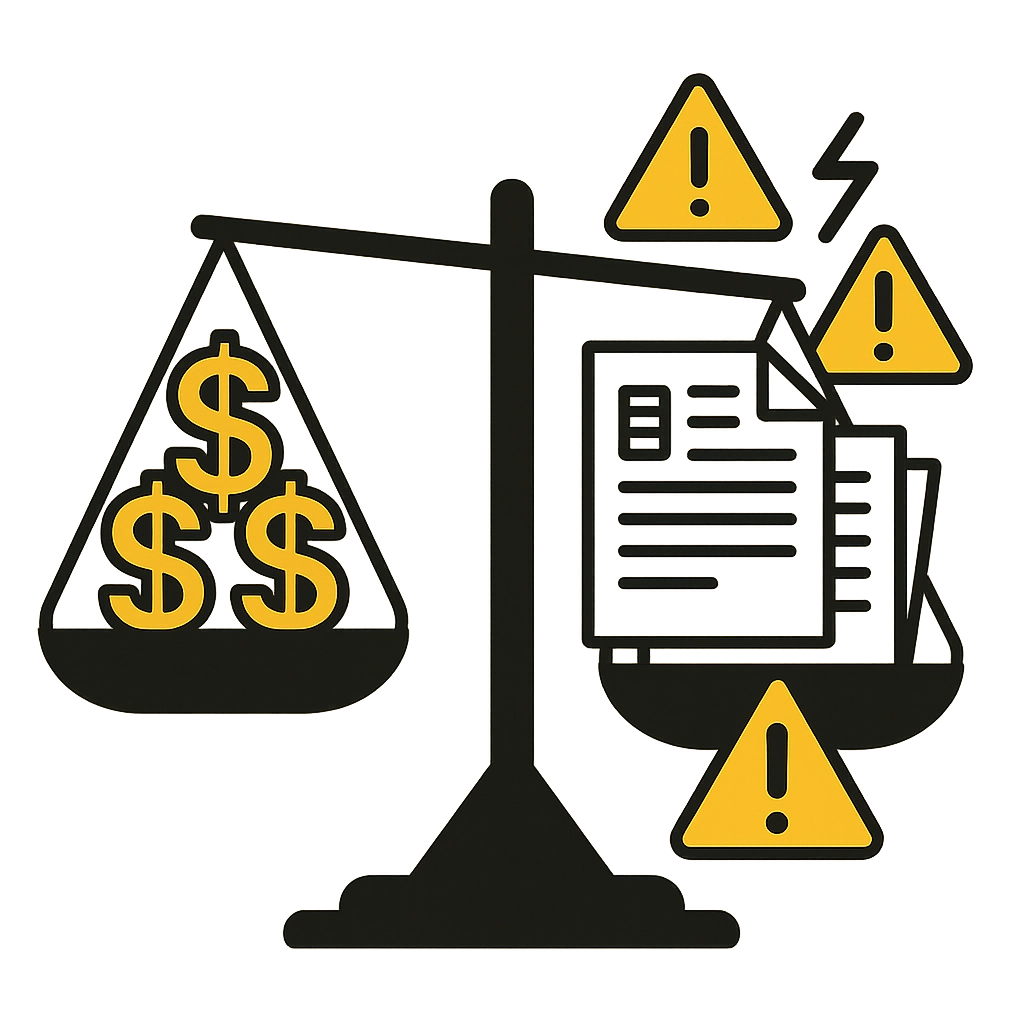California Compliance: Why It is So Challenging for Small Businesses (And How to Keep Up)
- Justin Hall
- Aug 28
- 5 min read
If you're running a small business in California, you've probably felt the weight of the state's complex compliance requirements pressing down on your shoulders. You're not alone—and you're not imagining things. California's regulatory landscape is genuinely one of the most challenging in the nation, with over 1,000 labor laws and regulations that small business owners must navigate.
The Golden State passed 44 new employment laws affecting small businesses in 2023 alone, and 2025 has already brought a fresh wave of changes that demand immediate attention. For small business owners juggling everything from payroll to customer service, staying on top of California's ever-evolving compliance requirements can feel overwhelming.
Why California Compliance is Uniquely Challenging
California doesn't just follow federal employment laws—it creates its own, often exceeding federal requirements by significant margins. This means your business needs to comply with both federal regulations and California's additional layers of protection for workers.
The state's approach is aggressive and comprehensive. California labor law covers everything from wage and hour requirements to employee classification, workplace safety, and employee rights in ways that other states simply don't address. This creates a regulatory environment where even well-meaning employers can easily stumble into costly violations.

The pace of change is relentless. While other states might introduce a handful of new employment laws each year, California consistently pushes through dozens of changes that require immediate implementation. For small businesses without dedicated HR departments, this constant evolution can be nearly impossible to track and implement properly.
The Financial Stakes Are Higher Than Ever
The California Labor Commissioner's Office collected over $320 million in wage theft claims in 2022—a 22% increase from the previous year. This isn't just about large corporations getting caught in major violations. Small businesses are feeling the heat too, with seemingly minor infractions leading to substantial penalties.
Consider this: unpaid meal breaks or late wage statements can result in penalties of up to $4,000 per employee. For a small business with 10 employees, a single compliance oversight could cost $40,000 or more. These aren't hypothetical numbers—they're real penalties being imposed on California businesses every day.
The Private Attorneys General Act (PAGA) adds another layer of financial risk. This law allows employees to sue employers on behalf of the state for Labor Code violations, and recent reforms have actually increased the employee penalty portion from 25% to 35%. This means more money in the pockets of employees who successfully bring these claims, creating additional incentive for litigation.
What's New in 2025: Key Changes You Need to Know
Captive Audience Meeting Restrictions
One of the most significant changes for 2025 is SB 399, which prohibits employers from requiring employees to attend meetings about religious matters, political matters, or labor organization decisions. If you've been holding mandatory company meetings that touch on these topics, you'll need to restructure your approach immediately.
This law specifically protects employees from being discharged, discriminated against, or retaliated against for refusing to attend these meetings. The implications extend beyond just company meetings—it affects how you communicate with your team about various workplace matters.
Enhanced Crime Victim Employee Rights
AB 2499 has significantly expanded protections for employees who are crime victims. This law creates new obligations around sick leave policies and workplace accommodations. If you haven't updated your employee handbook to reflect these changes, you're already behind.
These protections require employers to provide reasonable accommodations for employees dealing with the aftermath of crimes, including time off for court appearances, counseling, and other necessary activities related to their victimization.

Driver's License Requirements
SB 1100 introduces new restrictions on when you can require a driver's license for job openings. You can now only include driver's license requirements if you can demonstrate that driving is reasonably expected to be a job function and that alternative transportation wouldn't be comparable in travel time or cost.
This seemingly small change could affect how you write job descriptions and what requirements you include in your hiring processes.
The Independent Contractor Classification Minefield
Perhaps no area of California compliance is more treacherous for small businesses than employee classification. California's ABC test for determining independent contractor status is notoriously strict, and misclassification can lead to massive penalties and back-pay obligations.
Under the ABC test, a worker can only be classified as an independent contractor if:
They are free from company control and direction
They perform work outside the usual course of your business
They are engaged in an independently established trade or profession
Many businesses that have relied on contractor relationships in other states find these requirements impossible to meet in California. The financial consequences of getting this wrong are severe, including back wages, benefits, penalties, and potential lawsuit exposure.
Building a Sustainable Compliance Strategy
The key to managing California compliance isn't trying to master every law yourself—it's building systems that can adapt to change while protecting your business.
Start with a Risk Assessment
Begin by conducting a thorough review of your current practices. Look at your wage and hour policies, employee classification decisions, workplace policies, and record-keeping systems. Identify areas where you might be vulnerable to compliance issues.
Create Clear Policies and Procedures
Develop written policies that address California's specific requirements. Your employee handbook should cover meal and rest breaks, overtime policies, sick leave, and all the state-specific protections that apply to your workforce.

Implement Regular Training
Your managers and supervisors need to understand California's requirements. Regular training helps prevent violations and creates a culture where compliance is prioritized. This isn't a one-time event—it needs to be ongoing as laws continue to change.
Stay Connected to Updates
Subscribe to reliable sources for California employment law updates. Join industry associations, attend webinars, and maintain relationships with employment law professionals who can alert you to important changes.
Technology as a Compliance Tool
HR technology platforms like Paylocity and UKG have evolved to help small businesses manage California's complex requirements. These systems can automate meal break tracking, ensure proper overtime calculations, maintain required records, and even alert you to new compliance requirements.
The right HRIS can transform compliance from a constant worry into an automated process. Features like geofenced time tracking, automatic break reminders, and built-in California-specific calculations can significantly reduce your compliance risk.
The Cost of Going It Alone
Many small business owners try to handle California compliance internally, thinking it will save money. However, the hidden costs of this approach often far exceed the investment in professional support.
Consider the time you spend researching laws, updating policies, and worrying about compliance. Factor in the risk of penalties, lawsuits, and business disruption. For most small businesses, professional HR support isn't just helpful—it's essential for survival in California's regulatory environment.

When Professionals Help Makes Sense
If you're spending more than a few hours per month on HR compliance issues, or if you're constantly worried about whether you're following the right procedures, it's time to consider professional support. The complexity of California law means that even experienced business owners can benefit from specialized expertise.
Professional HR consulting can provide ongoing compliance monitoring, policy updates, employee handbook maintenance, and strategic guidance on classification and other complex issues. This support allows you to focus on growing your business while ensuring your compliance obligations are met.
Moving Forward with Confidence
California compliance doesn't have to be a source of constant stress. With the right approach, systems, and support, you can navigate the state's requirements while building a successful business. The key is recognizing that compliance is an investment in your business's future, not just a cost to be minimized.
The regulatory environment will continue to evolve, and new challenges will emerge. But with proper preparation and support, your business can thrive in California while meeting all its compliance obligations. The goal isn't just avoiding penalties—it's building a sustainable, legally compliant operation that protects both your business and your employees.
Don't let California's complex compliance requirements hold your business back. With the right strategy and support, you can turn compliance from a burden into a competitive advantage that demonstrates your commitment to doing business the right way.
Comments